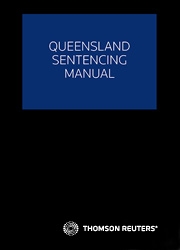Latest updates to the Queensland Sentencing Manual
Sentencing Federal Offenders - Crimes Act 1914 (Cth) - General sentencing principles
The non-parole period is to be determined having regard to the minimum period that justice requires the applicant serve in custody before he would be eligible for release on parole: R v Hatahet (2024) 98 ALJR 863; [2024] HCA 23 at [28]. See [7.30].
Sentencing Federal Offenders - Crimes Act 1914 (Cth) - Deportation no impediment to fixing a non-parole period
The probability of being granted (or not granted) a release on a parole under s 19ALB of the Crimes Act 1914 (Cth) is not a relevant consideration under s 16A of the Crimes Act 1914 (Cth): R v Hatahet (2024) 98 ALJR 863; [2024] HCA 23 at [28].
Deportation is still relevant to the exercise of the sentencing discretion, notwithstanding R v Hatahet (2024) 98 ALJR 863; [2024] HCA 23, because it is a factor which can render a sentence more than otherwise onerous: R v James [2024] QCA 142 at [57]. See [7.230].
Governing principles - Penalties and Sentences Act 1992 (Qld) - Domestic violence offences
Sections 9(2)(gb) and 9(10B) do not change the “instinctive synthesis” process and can mitigate a sentence if there is sufficient evidence the offender has been the victim of domestic violence or the commission of the offence is wholly or partly attributable to the effect of domestic violence on the offender: R v BEM [2024] QCA 175 at [19]-[20]. See [9.225].
A detailed summary of this release is available at [S24.30].

The Queensland Sentencing Manual is a practical resource designed for those involved with sentencing and criminal law in Queensland. Currently authored by Matt Jackson, a Barrister and Queensland Sentencing Advisory Council Member, the service offers: a guide to the Penalties and Sentences Act 1992 (Qld) as well as commentary on sentencing orders for juveniles, governing principles of sentencing, factors personal to the offender, plea of guilty, recording a conviction, sentencing hearings and appeals.
